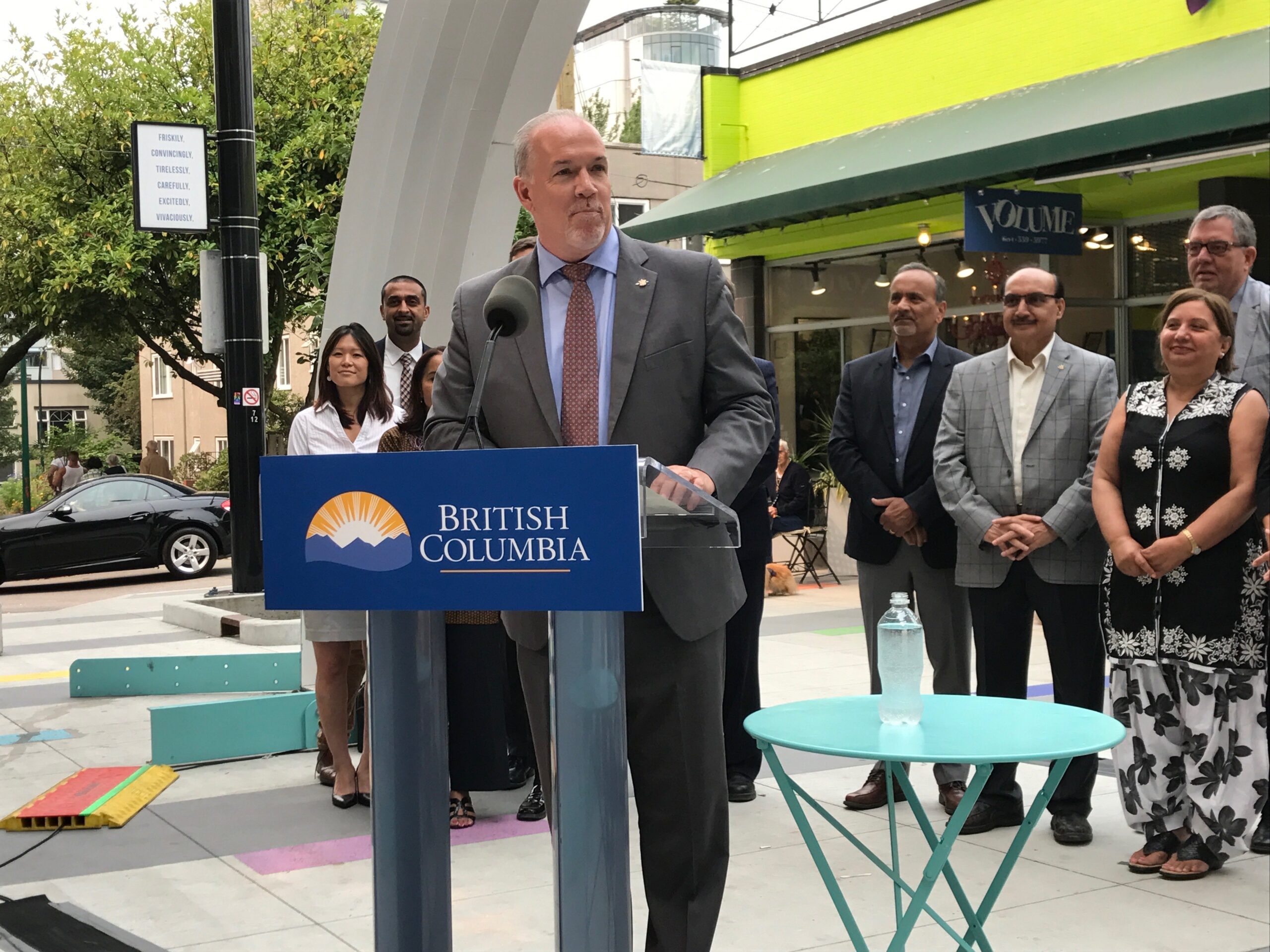The BC government is putting the brakes on a pre-election endorsement of free pre-exposure prophylaxis (PrEP) drugs.
In a statement to Xtra, the BC Ministry of Health says it will not be rolling out coverage of the HIV-prevention drugs anytime soon, despite a January 2017 interview in which now-premier John Horgan said it was a “mystery” why PrEP wasn’t already covered.
Experts on HIV care in the province say the delay will guarantee more British Columbians will be infected with HIV, especially young gay men.
In years of studies, PrEP has been shown to be highly effective and safe as a prevention measure against HIV transmission, and has been key to dramatic drops in HIV transmission in cities where it is widely and cheaply available, such as San Francisco and New York.
However, the drugs can cost nearly $1,000 per month in Canada, and are rarely covered by insurance. Generic PrEP drugs recently hit pharmacies in Canada, but prices still range in the hundreds of dollars a month.
In August, BC doctors and health professionals called on the provincial government to cover PrEP immediately, as Horgan suggested he would in an interview with Xtra before the May election.
In the interview, Horgan said the province should cover PrEP, and said giving people “the medical devices that they need to protect themselves” would save the province money over time.
In an emailed statement to Xtra, however, a spokesperson for the BC Ministry of Health wrote that the province will be waiting on more research and cheaper prices before covering the drugs:
“As a new government, it will take some time, but we are committed to enhancing evidence-informed decision making for new and existing drugs, in relation to coverage decisions. Recognizing that PrEP has the potential to make a very positive impact on the lives of British Columbians, Truvada for PrEP is currently being reviewed by the BC Centre for Excellence in HIV/AIDS in collaboration with the Ministry of Health.”
The Ministry of Health statement goes on to point out that the inter-provincial body responsible for deciding how provinces pay for drugs approved the PrEP drug Truvada on the condition that its manufacturer drop its price.
The statement then says the provinces are currently negotiating a lower price with the drug’s manufacturer, and that generic versions of the drug will lower the price even further. The Ministry of Health statement does not say when, or under what conditions, British Columbia will cover PrEP.
In a separate email to another Vancouver HIV activist, a different spokesperson for the ministry similarly stressed that it is waiting for both the completion of a review from the BC Centre for Excellence in HIV/AIDS, as well as for cheaper drug prices.
The BC Centre for Excellence in HIV/AIDS declined to comment for this story, but in a previous interview with Xtra, the centre’s director Dr Julio Montaner said the evidence for PrEP’s effectiveness was beyond any reasonable doubt.
PrEP has already become more affordable in Canada as new, cheaper generic drugs hit the market. But experts point out that even at full price, decades of PrEP coverage still costs less than the lifetime medical cost of treating an HIV patient.
Jody Jollimore, managing director of the Community-Based Research Centre, a gay men’s health research group, tells Xtra that the government’s foot-dragging will inevitably lead to preventable infections.
“How many young gay men are we going to allow to become HIV-positive when we know that they want this medication, they’re willing to use it and it’s working in other cities?” he asks. “What price are we willing to put on young gay men’s HIV infections?”
Jollimore points to data showing the number of young gay men infected with HIV nearly doubled between 2012 and 2014, the latest years covered by provincial reports. Those same young gay men, he says, are also the least likely to be able to afford PrEP or get coverage through professional health benefits.
People of colour and Aboriginal people are also disproportionately likely to be infected with HIV, and less likely to be able to access PrEP.
“They’re saying it’s OK for the least privileged in our communities to get these new infections,” Jollimore says. “And that’s everything this new government is supposed to not be. They’re not supposed to be leaving people behind. It’s disappointing to hear that their first reaction is to wait.”
Sarah Chown, executive director of YouthCO, an organization that helps young people affected by HIV, says she works regularly with young people who would use PrEP if they could, but can’t afford it. She says the provincial government’s delay on PrEP shows its priorities.
“For us, the message that we’ll fund PrEP later, or that people can get access to PrEP later, that we have to wait for our government to invest in us, is just another reason why youth feel excluded,” she says. “Youth are going without PrEP in the absence of a publicly covered program. And that’s a factor in who is getting HIV in 2017.”
In 2014, the most recent reported year, men who have sex with men made up 58 percent of all new HIV diagnoses in BC. The sharpest rise in new infections since 2012 has been among men born after 1990.
Editor’s note, Sept 20, 2017: An earlier version of this story stated that John Horgan’s interview with Xtra was in May 2017. It was in January 2017.


 Why you can trust Xtra
Why you can trust Xtra


